ĐỀ CHẴN
Part I. READING
Section 1: Choose the correct word or phrase from the list below to complete each of the following sentences:

- Henry is excited about leaving for India.
- Fred is always complaining about having a headache
- Last week I was offered a Job at a local bank, but I didn’t accept
- The jury found Mr. Adams guilty of taking money from the company he worked for and keeping It for himself.
- Instead of studying, Margaret went to a ball game with some of her friends.
- Success in one’s work is a satisfying experience
- I found myself in an embarrassing situation last night.
- Thank you for helping me carry the packages to the post office.
- Mrs. Grant insisted on knowing the whole truth.
- He showed us how to get to his house by drawing a map.
- You should take advantage of living here.
- The mayor made another public statement for the purpose of clarifying the new tax proposal.
- I have no excuse for being late.
- Bill isn’t used to wearing a suit and tie every day.
- Shake a leg! We don’t have all day to finish this work! Get moving! Lets step on it! Get busy and finish your work. There’s no time to waste
Section 2: Read the following passages and do the tasks follow:
Passage 1: Read the passage and answer to questions:
In 1274, Italian explorers Marco and Niccolo Polo set out on a 24 year Journey in which they traveled the famous Silk Road from Italy, through brutal deserts and towering mountains to eastern China. They traveled over 4,000 miles in all. Marco and Niccolo were among the very first Europeans to explore the fabled empire of China. In China, Marco Polo even worked for ruler Kublai Khan. Polo detailed his experiences and findings in China by writing a book. Polo described materials and inventions never before seen in Europe. Paper money, a printing press, porcelain, gunpowder and coal were among the products he wrote about. He also described the vast wealth of Kublai Khan, as well as the geography of northern and southern China. European rulers were very Interested in the products Polo described. However, trading for them along the Silk Road was dangerous, expensive and impractical. European rulers began to wonder if there was a sea route to the east to get the products they wanted at a reasonable price.
- How many years did Marco Polo’s journey to China last?
-> His journey to China lasted 24 years.
- Who was Kublai Khan and was him poor?
-> Kublai Khan was China’s ruler and he was not poor. Conversely, he was described as an extremely wealthy emperor.
- Marco Polo came to China from what country?
-> He came to China from Italy
- Marco Polo traveled to China with Niccolo polo.
- Why did European rulers begin to wonder if there was a sea route to the east?
-> It was because they were interested in the products described by Polo while shipping goods va the Silk road was dangerous, expensive and impractical.
Passage 2 : Read the passage carefully and choose ONE which you think fits best
Banks are places where people can keep their money. Most people use banks to save money in their savings accounts and to pay money from their checking accounts. Today, when a person earns money from their job, their paycheck ¡is often electronically deposited (put) into their savings or checking account. Then, he or she can pay their bills by writing checks from their checking accounts or pay online where their bills are electronically connected to their bank accounts.
Banks also give loans to people. Banks use the money that their customers deposit to lend to people to buy new houses, cars, or to start businesses among other reasons. The bank makes money from lending by charging interest. In other words, people have to pay back more than they borrowed. This amount depends on how risky the bank thinks the borrower is and how fast the loan is paid back among other things.
1, How much “interest” do borrowers have to pay?
A: It depends on a lot of things.
B: Most borrowers don have to pay interest.
C: Everyone pays the same amount of interest.
D: The story doesn’t say.
2, How does “interest” work?
A: Banks pay people more money than they borrowed.
B: Banks require people to pay back money they borrowed very quickly.
C: Banks require people to pay back more money than they borrowed.
D: Banks require people to pay back the same amount they borrowed.
3, What do banks NOT do?
A: provide a place where people can pay their bills from
B: lend money to people
C: provide a place for people to save their money
D: help people get Jobs
4, What do banks NOT do?
A: Give loans
B: Tax people
C: Allow people to pay bills online from their accounts
D: Charge Interest
5, How do banks make money?
A: Electronically
B: By having a lot of accounts
C: Saving their customers deposits
D: Charging the interest to those they lend to
Section 3: Read the paragraph below and think of ONE word which best fits each space. There is an example at the beginning (0).
How do you find a book in a library? If you know the author’s name, go to the author catalogue. Find the title of the (0)……… book…….and check the shelf mark. (1) Make a note of this before you (2) look for the appropriate shelf. If you do not know author’s name, however, go to the title catalogue. If there is no (4) title catalogue in the (5) library go to the subject catalogue. Check all the titles which are under the (6) subject you want. Then check the appropriate card, as with the author (7) catalogue Next, look for the book on the (8) shelf Let the librarian stamp it before you take it out of the library. If the (9) book isn’t on the shelf, ask the (10) librarian to get it for you.
Part II. WRITING
Section 1: The words in brackets can be used to form words that fit into the following sentences.
Example: I……… this morning, and I was late for work (SLEEP)
Answer: I overslept this morning, and I was late for work.
- The old lady hide all her savings under the floor. (SAVE)
- Your money will be refunded If the goods are not to your complete satisfaction (SATISFY)
- Oscar had eaten so much he had to loosen his belt. (LOOSE)
- The thief replaced the diamond with a worthless stone. (WORTH)
- Uncertainly about the company°s future meant that few people wanted to ¡invest money in it. (CERTAIN)
Section 2: Make all the changes and additions necessary to produce complete sentences from the following sets of words and phrases.
Example: I/use /live / this /house / when / young.
Answer: I used to live in this house when I was young.
- If you/ take this exam / study / be / likely / fail //
-> If you take this exam without studying, you are likely to fail.
- The children / full / excitement / at / thought / their coming holiday //
-> The children were/are full of excitement at the thought of their coming holiday.
- Many attempts / make / overcome / language barrier / little success / make //
-> Many attempts have been made to overcome the language barrier but little success has been made.
- Young people / less and less / dependent / their parents / tend /develop / independent thinking //
-> Young people who/that are less and less dependent on/upon their parents tend to develop independent thinking.
- The climate / Britain / same / that / northwestern Europe //
-> The climate of Britain is the same as that of northwestern Europe
- Jack London / life and writings / think / by many / represent / American / love / adventure//
-> Jack London’s life and writings are thought by many to represent the American love of adventure.
- They / no / intention / put / end / crisis / those days //
-> They had no intention of putting an end to the crisis in those days.
- James Watt /Scottish scientist/invent/steam engine//
-> James watt was a Scottish scientist, who is known for his invention of the steam engine.
- You/not pass/coming exam/unless/work hard//
-> You will not pass the coming exam unless you work hard.
- Our beautiful forests/destroy/if/we/do/nothing/preserve them//
-> Our beautiful forests will be destroyed if we do nothing to preserve them.
Section 3: Finish each of the following sentences in such a way that if means exactly — the same as the sentence printed before it.
Example: She needs to study harder.
Answer: She doesn’t study hard enough.
- The children couldn’t go swimming because the sea was very rough.
-> The sea was too rough for the children to go swimming.
- The mechanic serviced my car last week.
-> I had my car serviced by the mechanic last week.
- I advise you to put your money in the bank.
-> You’d better put your money in the bank.
- That restaurant is so dirty that no one wanfs to eat there.
-> The restaurant is too dirty to eat there.
- Although he had a good salary, he was unhappy In his Job.
-> In spite of this good salary be was unhappy in this job.
Section 4: Translation
4.1. Translate the following sentences info Vietnamese
- Have a safe Journey home!
-> Chuyến đi về nhà an toàn!
- It’s hard to overstate her beauty.
-> Thật khó để cường điệu/ phóng đại vẻ đẹ của cô ấy.
- My new assistant is very effcient, he always follows through all the tasks assigned to him.
-> Trợ lý mới của tôi rất có năng lực, cậu ấy luôn luôn hoàn thành tất cả nhiệm vụ được giao.
- Unlike managers, leaders only use power as a last resort
-> Khác với các nhà quản lý, những nhà lãnh đạo chỉ sử dụng quyền lực như một biện pháp cuối cùng.
- Environmental pollution is one of the most serious problems facing humanity today.
-> Ô nhiễm môi trường là một trong những vấn đề nghiêm trọng mà loài người đang phải đối mặt ngày nay.
4.2. Translate the following sentences into English.
1.Tiếc là tôi không thể giúp gì cho anh được, việc này nằm ngoài khả năng của tôi.
-> I apologize that I am unable to help you, this is beyond of my capital.
2. Công ty chúng tôi đối xử rất tốt với nhân viên nên không có gì ngạc nhiên là họ lại tận tâm như vậy?
-> Our company treats staffs very well, so it is no surprise that they are so dedicated.
3. Chúng ta cần thương lượng và đưa vào thực hiện các thỏa ước quốc tế để bảo vệ sức khỏe cộng đông và tài nguyên môi trường.
-> We need to negotiate and implement international aggressive to protect public health and environment resources.
4. Ban giám đốc rất ủng hộ chính sách kinh doanh mới của công ty.
-> Board of directors strongly supports new business policies/strategies of the company.
5. Nhắc đến Việt Nam, người ta không chỉ nhắc đến Vịnh Hạ Long, mà còn nhắc đến những món ăn ngon và đa dạng.
-> Vietnam is popular not only for Ha Long Bay but also for various of delicious cuisines.
Nội dung chính:
ĐỀ LẺ
Part I. READING
Section 1: Choose the correct word or phrase from the list below to complete each: of the following sentences

- The professor pointed out that many people have never studied social psychology.
- One part of studying in a university 1st doing homework.
- The amount of time you study can affect your grade on a test.
- In this class, students study two different theories that try to explain how people behave.
- Students can use the Internet to do their own research on a topic.
- If you compare the pace of life in big cities in Japan and big cities in Russia, you will notice many differences.
- I elbowed my way through the crowded room.
- They discussed the problem to analyze what went wrong.
- People who live in big cities tend to live life at a faster pace.
- Each of the country is unique and has ifs own special characteristics
- The pace of life in a city plays a significant part in giving people a feeling of the place.
- Relaxation is a way of feeling calm and enjoying yourself.
- Multitasking means doing more than one thing at a time.
- We wasted our money going to that movie. It was very boring.
- A factory is a place where a company makes products in large quantities
Section 2: Read the following passages and do the tasks follow:
Passage 1: Read the passage and answer the questions
Money is what you use to buy things. You may earn money from completing household chores, getting good grades, for your allowance, or for losing a tooth! Money is very important in our world and comes in many different forms.
People have been using money for hundreds of years. Before money gave specific values for things, people simply traded items. In the United States, we use the dollar as our currency or money, but people in different parts of the world use different currencies, though some countries also use or accept our dollars.
People earn money from the jobs they work and use that money to save for the future or pay for their houses, cars, good, taxes, medical needs, and household items, among other things. Even things such as turning the lights on, using the air conditioning or heat, and connecting to the internet cost money.
- According to the author of this story, what do you use to buy things?
-> We use money to buy things.
- How long have people used money?
-> People have been using money for hundreds of years.
- What is the currency of the USA?
-> It is the US dollar.
- What did people trade before there was money?
-> People simply traded items before there was money.
- Do people in different parts of the world use USD?
-> Yes, some countries also uses USD.
Passage 2: Read the passage carefully and choose ONE which you think fits best
Have you ever had the flu? If you have, you know how miserable It can make you feel. Most kids will get the flu sometime during their school years. When you have the flu, you usually get a fever (which can be high), have a cough, feel very tired, and may have a sore throat as well. It can make you feel sick for a few days or for as long as a week. Sometimes, it can be hard to tell if you have the flu or a cold, but with the flu, you’ll usually have a higher fever and feel much worse. The flu is a type of virus, which means medicine will only help the symptoms such as the cough and fever. For most kids, the flu comes and goes, but for some, if can be a serious illness.
Most kids get the flu in the winter because germs spread more easily when kids are inside in settings such as classrooms. The best way to prevent from getting the flu is to wash your hands often, keep your hands to yourself, and go to your doctor for the flu shot or mist.
1, According to the author….
A: most kids don’t even realize they have the flu
B: the flu can’t easily spread from one person to another
C. most kids get the flu in winter.
D: medicine can help kill the flu
2, Why is the flu most easily spread in the winter?
A: Because kids are inside in classroom settings
B: Because kids are outside playing in the cold
C: Because there is less daylight in winter days
D: Because kids start washing their hands more in the winter
3, What question 1st answered in the first paragraph?
A: How do I prevent the flu?
B: How long does the flu last?
C: When does the flu spread?
D: How many people get the flu?
4, Which of the following WOULD NOT help you in preventing the flu?
A: Getting a flu shot or flu mist
B: Washing your hands often
C: Keeping your hands to yourself
D: Shaking the hands of your classmate
5, What does the author IMPLY ¡n the following sentence?
“The flu is a type of virus, which means medicine will only help the symptoms such as the cough and fever”
A: Medicine will not help your fever or sore throat
B: Medicine will NOT be able to kill the flu
C: You should not bother taking medicine if you have the flu
D: The flu 1st not really a virus
Section 3: Read the paragraph below and think of ONE word which best fits each space. There is an example at the beginning (0).
British humour is often very difficult to (0) understand. A lot of (1) humour depends on the use of (2) words which sound the (3) same but have different meanings. For example, when someone said he was on a seafood diet, everyone thought that the person (4) ate fish. When he was asked what (5) type of seafood he ate, however, the (6) man replied, It’s very simple indeed. When I (7) see food, I eat it. That’s a see-food (8) diet People often begin to (9) tell Jokes by saying. “Have you (10) heard the one about …?
Part II. WRITING
Section 1: The words in brackets can be used to form words that fit info the following sentences
Example: I…….. this morning, and I was late for work (SLEEP)
Answer: I oversleep this morning, and I was late for work.
- Would you mind opening the door? Thanks. (OPEN)
- All the newspapers praised the bravery of the firemen. (BRAVE)
- The restaurant 1st now under new management (MANAGE)
- The manager handed in his resignation after being accused of dishonesty. (RESIGN)
- Thousands of people have been made homeless by the war. (HOME)
Section 2: Make all the changes and additions necessary to produce complete sentences /tom the following sets of words and phrases.
Example: I/use /live/ this /house / when / young. Answer:
I used to live in this house when I was young.
- A friend/ mine /recently / return / England / advise me / write / you.//
-> A friend of mine who has recently returned from England advised me to write to you.
- I/hope/ come/ England/ next year/ spend/ some months/ Cambridge//
-> I hope to come to England next year and spend some months in Cambridge
- I be/ very please/ receive/ parcel/ send//
-> I was very pleased to receive the parcel you had sent.
- Last Monday/ I have/ accident/ when I drive/ work//
-> Last Monday, I had an accident when I was driving to work
- They / no/ intention/ put/ end/ crisis/ those days//
-> They had no intention of putting on end to the critics in those days.
- Andrea/ get along very well/ new job//
-> Andrea is getting along very well in her new job.
- Addition/ have considerable experience/ new secretary/ bilingual//
-> In addition to having considerable experience, the new secretary.
- Parents/ once/ we-off/ go out of business//
-> His/her parents were once well-off but they went out of business.
- He/ used to/ go hunting/ forests/ younger//
-> He used to go hunting in forests when he was younger
- Dog/ bark/ at / the/ cat/ last night//
-> The dog barked at the last night.
Section 3: Finish each of the following sentences in such a way that if means exactly the same as the sentence printed before it.
Example: She needs to study harder.
Answer: She doesn’t study hard enough.
- It was so late that nothing could be done.
-> It was too late to do anything.
- You may get hungry on the train, so take some sandwiches.
-> In case you get hungry on the train, you can take some sandwiches.
- We couldn’t drive because of the fog.
-> The fog prevented us from driving.
- The child will die if nobody sends for a doctor.
-> Unless somebody sends for a doctor, the child will die.
- Maria didn’t apply for the job in the library and regrets it now.
-> Maria wishes that she had apply for the job in the library.
Section 4: Translation
4.1. Translate the following sentences info Vietnamese
- Most people want more than they can afford to buy.
-> Hầu hết mọi người muốn nhiều hơn họ có thể chi trả.
- The value of all goods and services produced in any year makes up a nation’s gross national product.
-> Giá trị của tất cả hàng hóa và dịch vụ được sản xuất trong một năm bất kỳ tạo thành tổng sản phẩm quốc gia.
- Henry talks to his dog as if it understood him
-> Henry nói chuyện với con chó của mình như thể nó hiểu anh ấy.
- He talls to me as if there were nothing between us
-> Anh ta nói chuyện với tôi như thể không có gì giữa chúng tôi
- Irresponsibility is the quickest way for you to get sacked
-> Sự vô trách nhiệm là cách nhanh nhất để bạn bị sa thải.
4.2. Translate the following sentences into English.
- Trung Quốc giờ đây đang được coi là nền kinh tế năng động nhất thế giới vì nước này tăng trưởng không những nhanh mà còn bền vững.
-> China is currently considered the most dynamic economy in the world because of its rapid and sustainable development.
- Chưa bao giờ miền quê bé nhỏ này phải hứng chịu một trận bão khủng khiếp đến như vậy.
-> Never before has this countryside suffered such a terrible storm.
- Bán được hết lô hàng này tớ sẽ trả tiền cho cậu.
-> After selling this shipment. I will pay you.
- Phải công nhận rằng ông ấy là một nhà lãnh đạo kiệt xuất.
-> There is no doubt that he is an outstanding leader.
- Bảo vệ môi trường là bảo vệ cuộc sống của chính chúng ta.
-> Protecting the environment is protecting our lives.
Chúc bạn ôn luyện đạt hiệu quả!
CPA là gì?
CPA là cụm từ viết tắt của Certified Public Accountants, có nghĩa là Những kế toán viên công chứnng được cấp phép. Dễ hiểu là những người hành nghề kế toán – kiểm toán được công nhận bởi các hội nghề nghiệp của quốc tế hoặc nội địa.
Chứng chỉ CPA Việt Nam là 1 chứng chỉ hành nghề . Chỉ khi bạn sở hữu chứng chỉ CPA Việt Nam ( hay còn gọi là chứng chỉ kiểm toán viên) thì bạn mới trở thành 1 kiểm toán viên còn trước đó bạn sẽ được gọi là trợ lý kiểm toán viên. Chỉ những kiểm toán viên mới có quyền điều hành cuộc kiểm toán và ký báo cáo kiểm toán tại Việt Nam. Vậy thì bao lâu mới có được chứng chỉ kiểm toán viên này và phải trải qua những gì thì mới có thể qua được kỳ thi này.
Điều kiện tham dự kỳ thi
Có bằng tốt nghiệp đại học trở lên về chuyên ngành Tài chính, Ngân hàng, Kế toán, Kiểm toán; hoặc có bằng tốt nghiệp đại học các chuyên ngành khác và có tổng số đơn vị học trình (hoặc tiết học) các môn học: Tài chính, Kế toán, Kiểm toán, Phân tích hoạt động tài chính, Thuế từ 7% trên tổng số học trình (hoặc tiết học) cả khóa học trở lên; hoặc có bằng tốt nghiệp đại học các chuyên ngành khác và có văn bằng, chứng chỉ hoàn thành các khoá học do Tổ chức nghề nghiệp quốc tế về kế toán, kiểm toán cấp bảo đảm các quy định tại Điều 9 Thông tư 129/2012/TT-BTC.
Có thời gian công tác thực tế về tài chính, kế toán từ 60 tháng trở lên tính từ tháng tốt nghiệp ghi trên quyết định tốt nghiệp đại học hoặc sau đại học đến thời điểm đăng ký dự thi (hoặc thời gian thực tế làm trợ lý kiểm toán ở doanh nghiệp kiểm toán từ 48 tháng trở lên tính từ tháng ghi trên quyết định tốt nghiệp đại học hoặc sau đại học đến thời điểm đăng ký dự thi.
Như vậy bạn cần có ít nhất 4 năm kinh nghiệm đối với trợ lý kiểm toán viên hoặc 5 năm kinh nghiệm với 1 nhân viên kế toán- tài chính. Không phải là quãng thời gian dài nhưng cũng không hề ngắn với mỗi con người.
Môn thi, thời gian thi và hình thức thi:
Thi 7 môn, gồm:
+ 06 môn thi viết, thời gian thi 180 phút/ 1 môn, gồm:
(1) Pháp luật về kinh tế và Luật Doanh nghiệp
(2) Tài chính và quản lý tài chính nâng cao;
(3) Thuế và quản lý thuế nâng cao;
(4) Kế toán tài chính, kế toán quản trị nâng cao;
(5) Kiểm toán và dịch vụ đảm bảo nâng cao;
(6) Phân tích hoạt động tài chính nâng cao.
+ 01 môn Ngoại ngữ (trình độ C) của 01 trong 05 ngoại ngữ thông dụng: Anh, Nga, Pháp, Trung Quốc, Đức: Thi viết trong thời gian 120 phút.
Vượt qua kỳ thi này bạn mới có thể trở thành 1 kiểm toán viên!!!



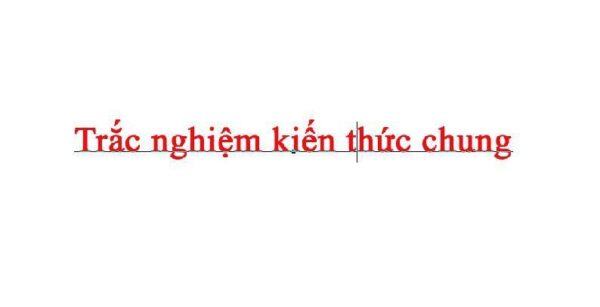
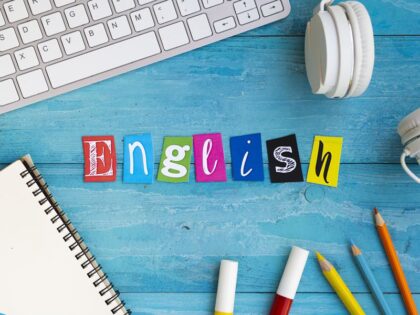
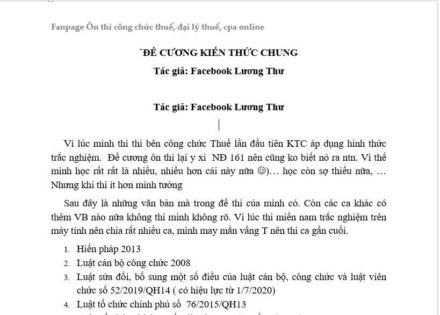
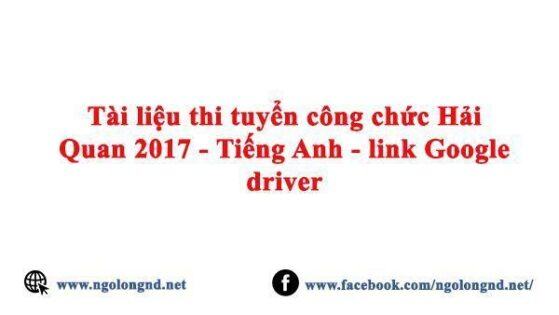
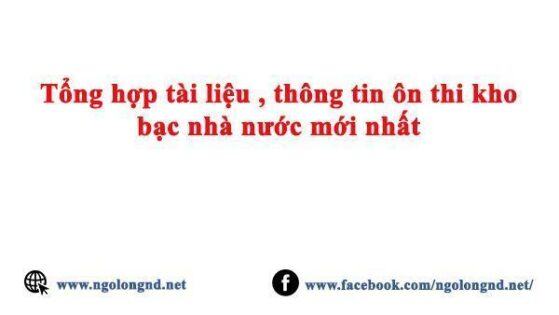
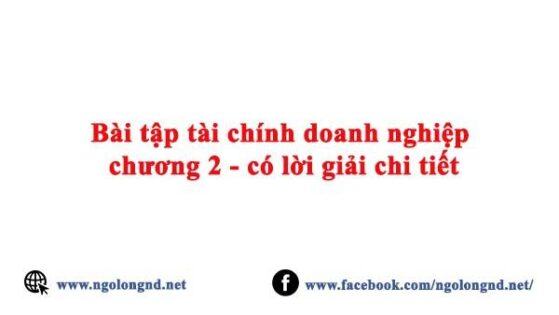

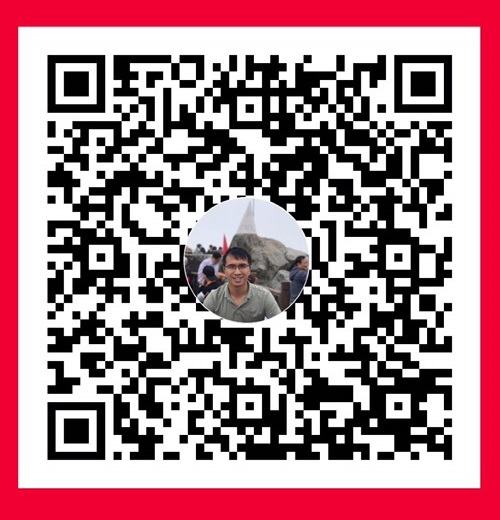
Pingback: nagaway สล็อต
Pingback: ปัง ปัง สล็อต